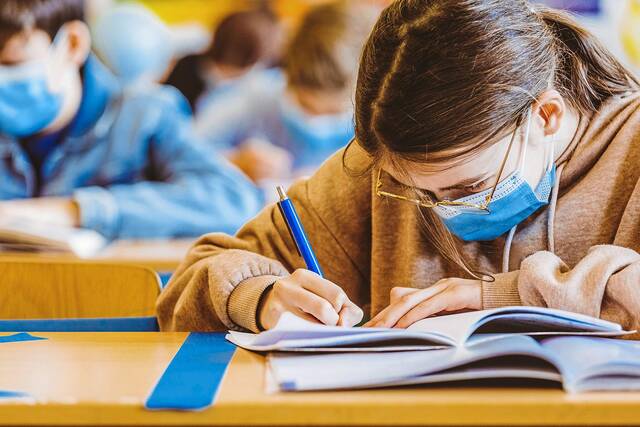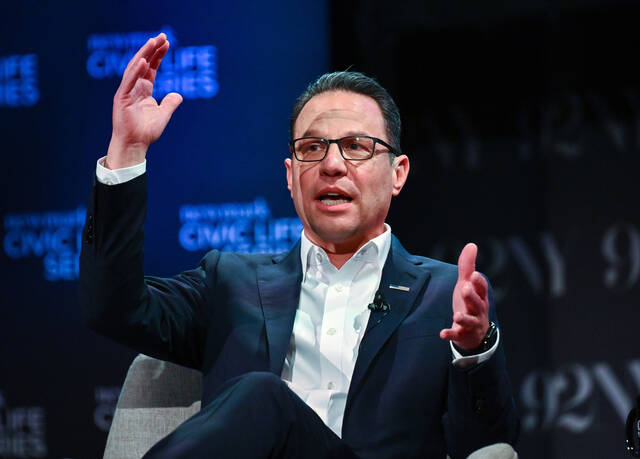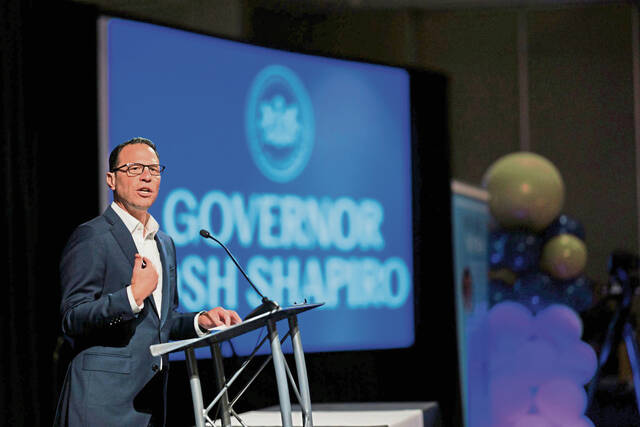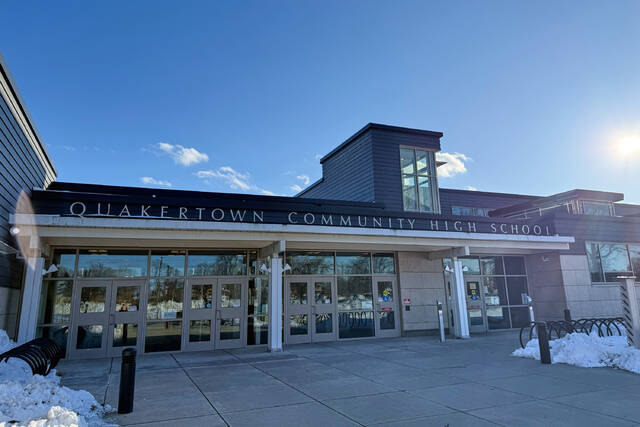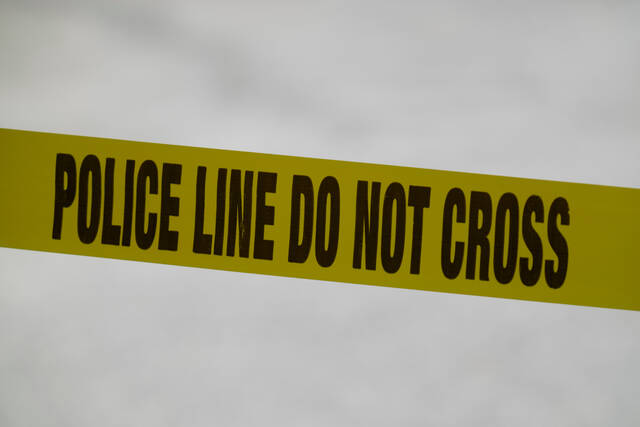As Gov. Tom Wolf’s administration has defended its school mask mandate in court over the past three months, it has relied on a portion of the state health code that allows for the “surveillance of disease.”
On Wednesday before the Pennsylvania Supreme Court, Senior Deputy Attorney General Sean Kirkpatrick presented a new argument — saying the masking order must be considered part of a “modified quarantine.”
A key feature of a modified quarantine is the selected, partial limitation of movement, Kirkpatrick said.
“The masking order does precisely this because it prohibits individuals without masks from entering school buildings,” Kirkpatrick argued.
Chief Justice Max Baer seemed unconvinced.
“How in the world is masking a modified quarantine?” he asked. “I know your purpose is laudable. You’re trying to protect the citizenry. But … you’re trying to shoehorn the order into language that doesn’t quite work for you.”
Last month, the Commonwealth Court ruled that Acting Health Secretary Alison Beam did not have the authority to issue the August order requiring anyone entering a school building to wear a mask. Instead, the court found that Beam was required to follow state rule-making procedures.
The administration appealed, and the Supreme Court heard arguments from attorneys on both sides of the issue Wednesday morning in Philadelphia.
Kirkpatrick spent much of his time discussing modified quarantine.
Under the health code’s section on disease-control measures, the state health department can order:
- “Isolation of a person or an animal with a communicable disease or infection.”
- “Surveillance, segregation, quarantine or modified quarantine of contacts of a person or an animal with a communicable disease or infection.”
- “And any other disease control measure the department or the local health authority considers to be appropriate for the surveillance of disease, when the disease control measure is necessary to protect the public from the spread of infectious agents.”
Justice Christine Donohue told Kirkpatrick she has read every definition in the statute and code.
“I’m trying to help you here,” she said. “I think it’s abundantly clear the other control measures are tied to surveillance, which is intended to promote effective control.”
Justice Kevin Dougherty repeatedly pushed Kirkpatrick for a better explanation of his modified-quarantine argument.
“Share with me how the wearing of a mask is a ‘partial limitation of freedom of movement,” Dougherty said.
“We’re not saying anyone has to wear a mask,” Kirkpatrick answered. “You can’t enter a school without wearing a mask.”
Dougherty offered an alternative. Why not, he asked, spend 15 or 30 minutes each day running rapid covid-19 tests on students, instead of eight hours a day wearing masks?
Baer cut off that line of questioning.
“I haven’t gotten an answer I understand,” Dougherty told him.
“You haven’t gotten one that’s going to convince you,” Baer replied.
Kirkpatrick said that when Beam issued the masking order for K-12 schools, she was trying to address two issues: students being harmed both educationally and socially by not being physically in school. But she also had to weigh the threat of illness and death from covid-19.
Her options, he said, were quarantining everyone or allowing classes to go on while requiring masks.
“This was tailored to address both,” he said. “That’s why we have a Department of Health — to narrowly tailor and address competing concerns.”
Justice Debra Todd asked whether parents have the right to decide what’s best for their children.
“Doesn’t this address what’s best for other children, the whole group, the whole society, the whole membership of schools?” she asked. “What’s best for all of them is to be masked so they’re not spreading the disease to others.”
Dougherty asked Kirkpatrick how Beam’s regulatory authority trumps a parent’s constitutional right to decide what is best for their own child.
The attorney said it doesn’t — if parents don’t want to follow the masking order, they can choose for their children to do virtual schooling.
Thomas Breth, who represents the group of parents and students who sued the state over the mask mandate, said that there is no such alternative offered in the August order.
Breth told the court that the government only pivoted to the modified-quarantine argument now because it saw that its surveillance-of-disease defense failed.
Instead, he said, the health secretary could have used the many months of legal challenges to follow the rule-making process as outlined by the legislature.
“It isn’t overnight, but we’ve been dealing with the issue of masking in schools for months and months and months,” Breth said. “It’s not as if the governor and acting secretary of health haven’t had adequate time to take advantage of that.
“Their failure to move it forward isn’t an excuse for requiring them to utilize it. They’ve chosen not to,” he said.
The court, which will issue a written opinion on the issue, did not give a time frame for when it would do so. It has ruled quickly in the past on issues related to covid-19.
The court acknowledged how divisive the issue of masking has become in society, but noted that the decision it must make is narrow.
“None of that really matters,” Baer said. “I understand this is an intensely personal issue in a divided country.”


